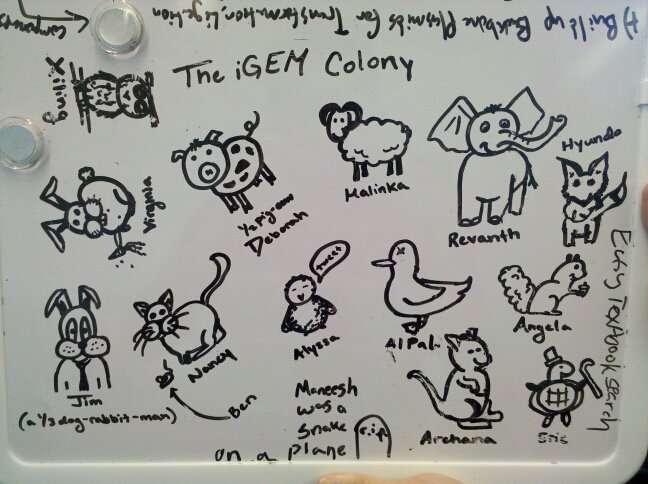Team:Cornell
From 2010.igem.org
Bammarata89 (Talk | contribs) |
(→OMG OMVs!) |
||
| Line 26: | Line 26: | ||
as an attachment site for fluorescent proteins. The current goal of this project is to | as an attachment site for fluorescent proteins. The current goal of this project is to | ||
characterize the distribution of varying ClyA-fluorescent protein complexes on OMVs. | characterize the distribution of varying ClyA-fluorescent protein complexes on OMVs. | ||
| - | Future work will be to develop a tracking system employing a ClyA-fluorescent protein | + | Future work will be to develop a tracking system employing two ClyA constructs: a ClyA-fluorescent protein |
| - | + | fusion for in vitro microscope imaging and a ClyA-single-chain antibody fragment to bind to an antigen. | |
| - | + | ||
| - | an | + | |
| - | + | ||
Revision as of 03:02, 28 October 2010
OMG OMVs!Outer membrane vesicles (OMVs) are natural secretions by gram-negative bacteria that can transport various proteins, lipids, and nucleic acids in interactions with mammalian host cells. OMV technology presents an affordable, non-toxic, and direct method of drug delivery and antigen tracking. We have designed a method for visualizing the interactions of mammalian cells with outer membrane vesicles by utilizing the ClyA surface protein as an attachment site for fluorescent proteins. The current goal of this project is to characterize the distribution of varying ClyA-fluorescent protein complexes on OMVs. Future work will be to develop a tracking system employing two ClyA constructs: a ClyA-fluorescent protein fusion for in vitro microscope imaging and a ClyA-single-chain antibody fragment to bind to an antigen. |
 "
"

